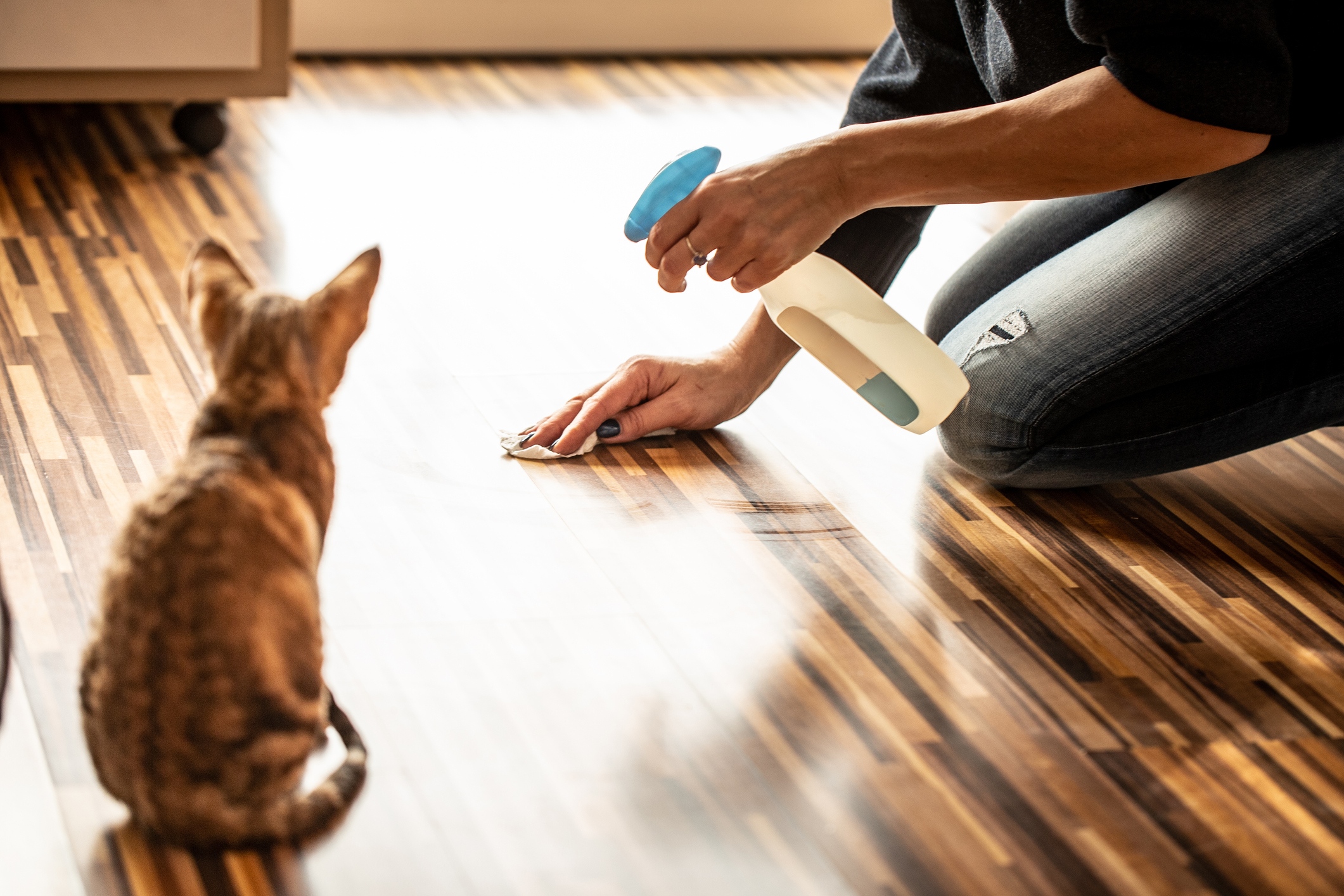Table of Contents
Whether your cat had a particular motivation to urinate outside of the litter box or it was just an accident, one thing is for sure: you’ve got to get rid of that smell. Cats are creatures of habit, so once your cat has urinated outside the box, he’s more likely to pee in that same spot again.
First, it’s important to completely eliminate the odor of urine. Cats tend to want to pee in places that smell like cat urine, and if they pick up on the scent, they may go in the same area again. When you find an “accident,” be sure to clean it up as quickly as possible so the smell doesn’t settle in. The reason cat urine is so pungent is that the bacterium in it decomposes and gives off the distinctive ammonia-like odor. Often you don’t know there’s a problem until this process has begun.
Outside the box: what’s going on?
If your cat has urinated outside his litter box, the first thing you need to do is figure out why, so you can prevent this behavior from continuing. Though your cat isn’t being spiteful, he could be sending you a message. A visit to your veterinarian might be in order since inappropriate urination can be a symptom of a urinary tract infection, kidney disease, diabetes or hyperthyroidism. Your cat could also be spraying due to stress or anxiety.
If illness or stress isn’t the cause of your kitty’s potty problem, it could be that he doesn’t like the litter you’re using or that you’re not scooping it often enough. Cats are fastidious and won’t use a box that is dirty. Try changing the brand or type of litter, scooping more frequently, or adding additional litter boxes.
Eliminating the odor
Here are some tips for cleaning up after kitty.
- Blot up as much of the urine as you can with a rag or paper towels.
- Rinse the area with clean water, and use an extracting wet vacuum (don’t use a steam cleaner – it can set the stain, and the odor as well).
- Walls and floors: You can use a vinegar solution to neutralize alkaline salts that form in dried urine; use a mixture of one part water with one part vinegar to clean walls and floors. The vinegar and urine smell will dissipate over time. Note: never use cleaning products that contain ammonia because ammonia is a component of cat urine. If your cat smells it, he’ll be more likely to go in the same spot again.
- To clean mattresses, couch cushions, or carpets, use an enzyme-based cleaner, which can be found at your local pet store. The natural enzymes break down the acid in urine, helping to eliminate the smell. The cleaners also contain good bacteria to get rid of the bad bacteria that causes the nasty odors. Unfortunately, if urine has soaked into the padding underneath your carpet, you may need to replace portions of both carpet and padding. Once the smell has been eliminated and the area has dried, scatter baking soda on the spot and let it sit for an hour, then vacuum it up.
Your cat may need a little encouragement to go in the right place. Give him his favorite treat after he uses his litter box. Don’t pick him up and carry him to the box as he won’t understand and could even become frightened.
Scoop the litter box twice a day and clean it every couple of weeks. And remember, if your cat is suddenly spraying or going outside the box, take him to your veterinarian to rule out health issues.





